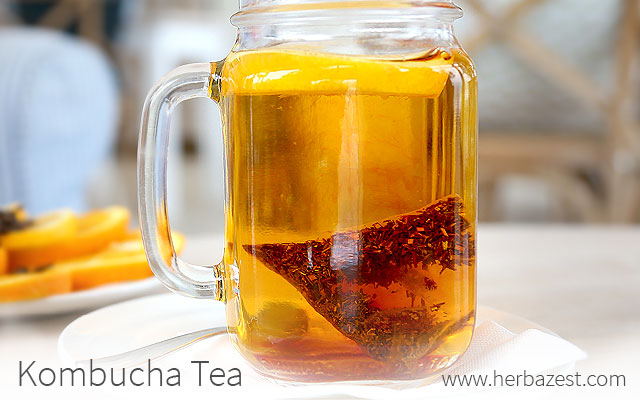This trendy beverage, kombucha tea, is known around the world under nearly 80 different names, such as 'tea mushroom' or 'Manchurian mushroom' to mention a few. Claims about its alleged medicinal properties include improving memory problems, rheumatism, hypertension, and many others. Its high probiotic content is said to be beneficial for the digestive system. However, not all of these claims have been supported by science.
History of Kombucha Tea
Although the exact origins of kombucha tea are not clear, it is believed to have originated about 2,000 years ago in Manchuria, a region of Northern China. It has been appreciated for its medicinal properties, particularly detoxifying and energizing, and its fame has slowly spread across Asia and Europe with the expansion of trade routes.
In the 1960s, Swiss scientists claimed that health benefits of kombucha tea were similar to those of yogurt, which contributed to its rising popularity. Today, kombucha tea continues to be an attractive beverage choice, especially to enthusiasts of home brewing.
How to make Kombucha Tea
Making kombucha tea at home is easy and common around the world. The process requires a handful of ingredients, such as:
- SCOBY (symbiotic colony of bacteria and yeast)
- Tea bags or leaves (traditionally dark tea varieties)
- Sugar or honey
- Water
- Glass jar
- Cheese cloth or paper towel
Scoby can be either purchased from a specialty store or grown from a pre-made kombucha. Growing scoby takes two to four weeks, and it can be reused a number of times. The rest of the ingredients are regular, store-bought.
Assembling kombucha tea jars:
- Bring water to a boil and remove it from heat
- Add the tea leaves or tea bags of choice
- Add the sugar or honey and stir to dissolve
- Allow it to cool down
- Remove the tea bags or loose leaves
- Transfer to a jar and add the scoby
- Cover the jar with a cheese cloth or a paper towel and secure it with a rubber band.
Once assembled, the kombucha tea has to rest for 7 - 10 days to be able to offer its richness. The jar must be kept at room temperature, away from direct sunlight. Near the end of the waiting period, the kombucha tea can be savored and the time can be shortened or extended according to taste.
Safety Issues
Some adverse reactions from drinking kombucha tea have been reported; however, they were generally linked to the cases of contamination, arising from improper conditions in which the tea was made, or over-fermentation, not its natural properties per se.
Since making kombucha tea involves live bacteria and yeast, it is not recommended for people with candida overgrowth, Irritable Bowel Syndrome (IBS), or compromised immune system, as well as for women who are pregnant or breastfeeding. Due to its sugar content, kombucha tea should be drank in moderation by people suffering from diabetes. It is also worth to mention that kombucha tea contains a small amount of alcohol, which is a by-product of fermentation.
Best Kombucha Tea
Kombucha tea is all about personal preference. It can be made from all tea types, from black tea varieties, such as Darjeeling and Oolong, to green tea and white tea. It can even be brewed from herbal infusions made with nettle, hibiscus, or valerian. It is generally unflavored, but some people like to add a splash of natural juice, such as lemon, orange, or cranberry.
Where to Buy Kombucha Tea
Although the majority of kombucha teas are brewed at home, select health food stores and online companies do carry them. They come in a variety of flavors, and a 16 oz. (470 mL) bottle typically costs three to five US dollars, which is a motivating factor for many lovers of kombucha tea to switch to home brewing as it substantially lowers the cost.
Sources
- American Nutrition Association, Kombucha Tea
- Comprehensive Reviews in Food Science and Food Safety, A Review on Kombucha Tea – Micrology, Composition, Fermentation, Beneficial Effects, Toxicity, and Tea Fungus, 2014
- Mayo Clinic, What is kombucha tea? Does it have any health benefits?




